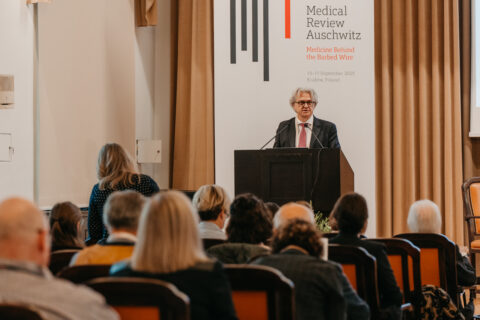6th international conference Medical Review Auschwitz: Medicine Behind the Barbed Wire
The 6th edition of the international conference Medical Review Auschwitz: Medicine Behind the Barbed Wire was held in Kraków on September 15-17, 2025.
The event brought together more than 100 participants from over a dozen countries, including young physicians from the United States and Israel who participated in the conference’s fellowship program.
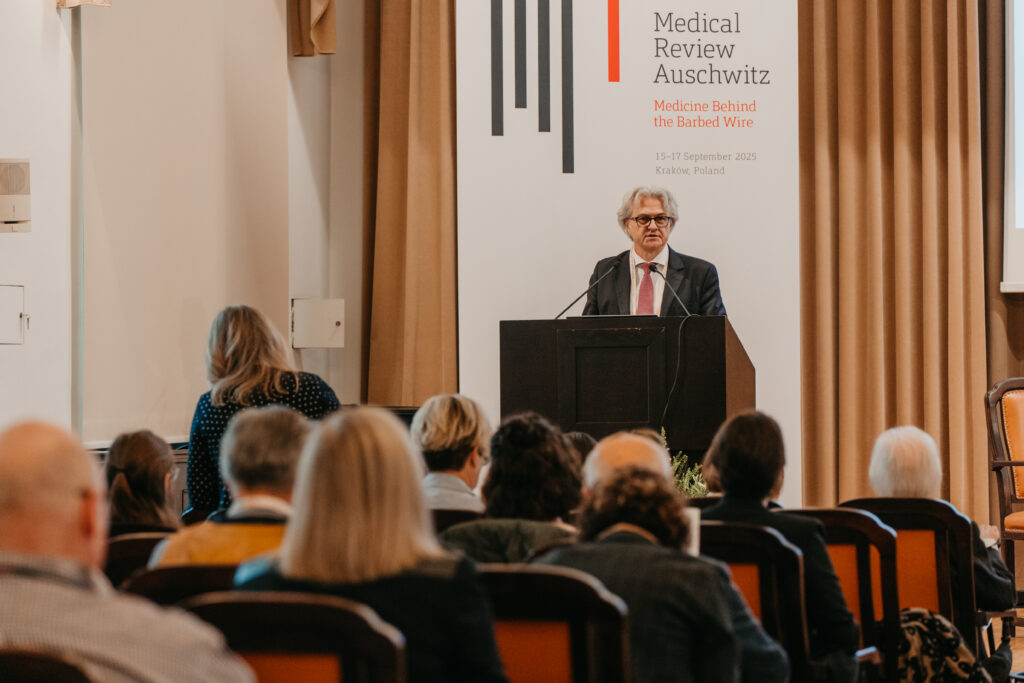

photo: Magda Rymarz
The conference opened with a study visit to the Auschwitz-Birkenau State Museum, which included entry to Block 10, where criminal medical experiments had been conducted on prisoners. Participants also viewed the exhibition Negatives of Memory. Labyrinths by Marian Kołodziej, prisoner no 432 of KL Auschwitz, at the St. Maximilian Maria Kolbe Center in the nearby village of Harmęże. Nearly 50 years after surviving the camp, Kołodziej created a series of powerful drawings depicting his experiences.
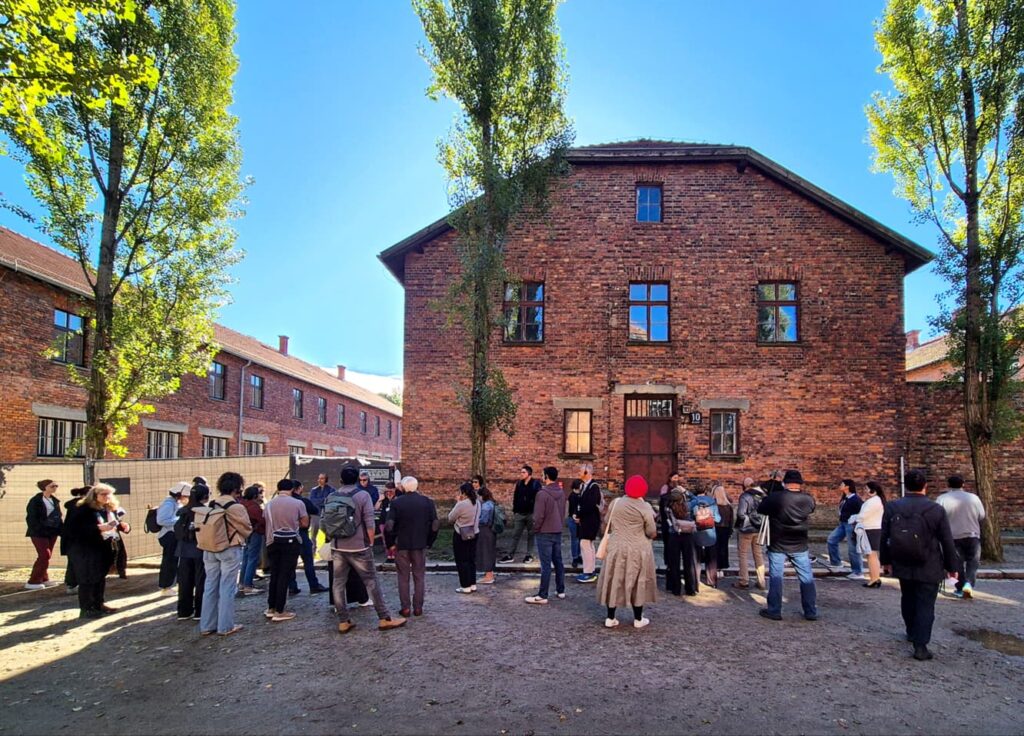

photo: Monika Tota
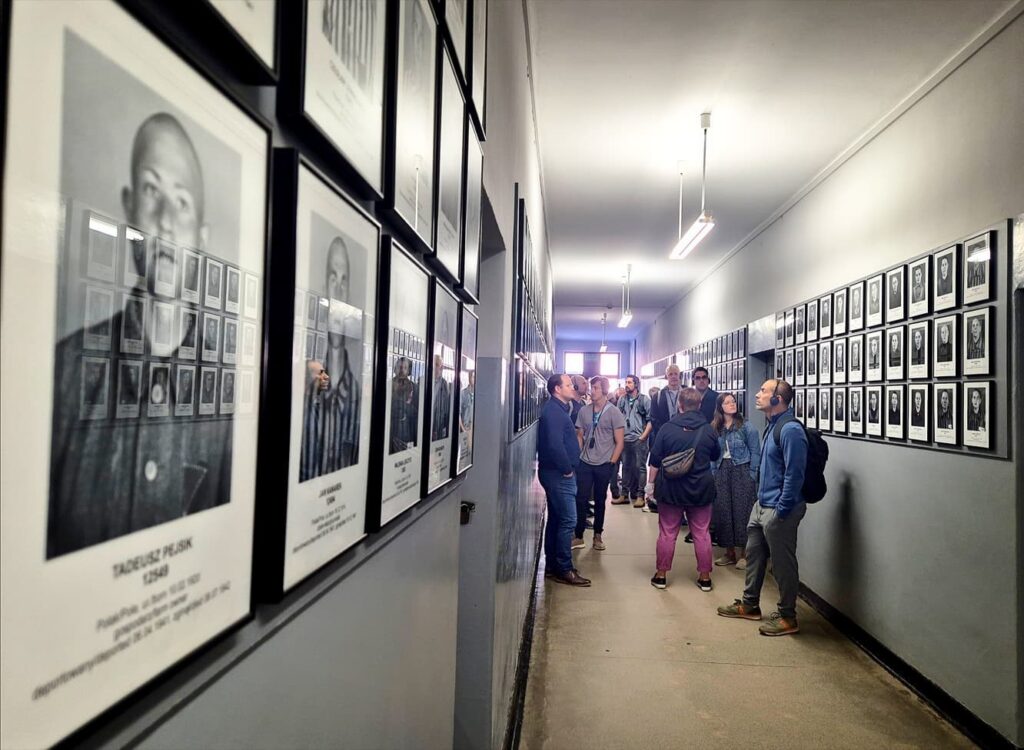

photo: Monika Tota
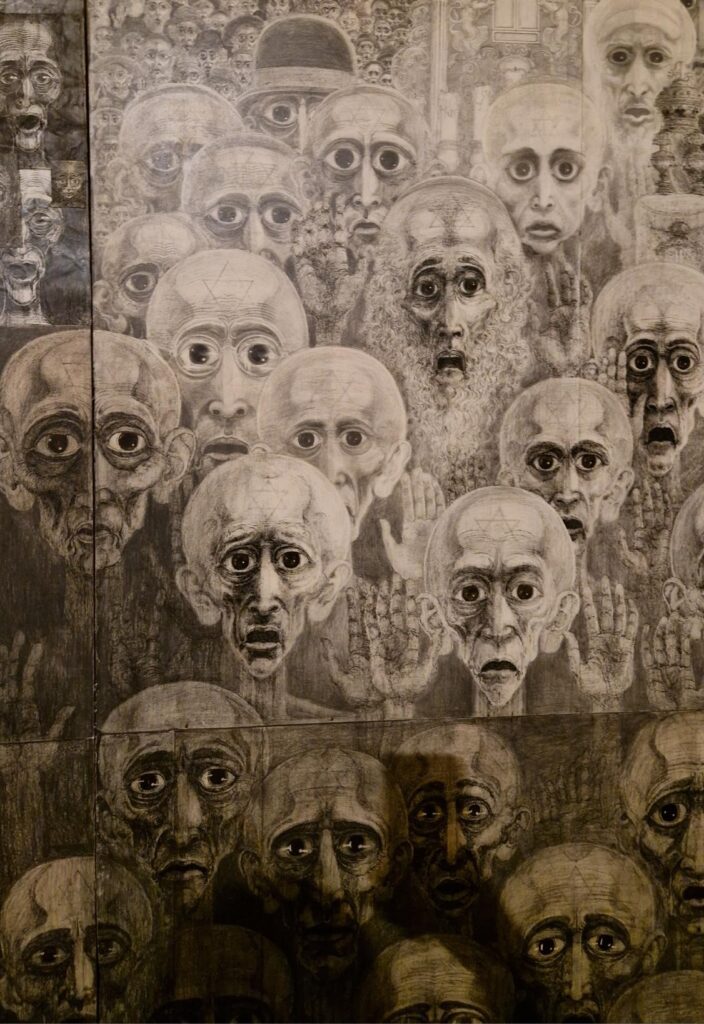

photo: Joanna Brusik
The academic sessions of the conference were held at Jagiellonian University’s Collegium Novodvorscianum (ul. Św. Anny 12), adjacent to Kraków’s medieval Main Square. The opening remarks were delivered by Prof Maciej Małecki, Vice Rector of the Jagiellonian University Medical College; Dr Piotr Gajewski, President of the Polish Institute for Evidence Based Medicine; and Assoc Prof Karol Polejowski, Vice President of the Institute of National Remembrance.
The guest of honor was Dr Leon Weintraub, a 99-year-old survivor of German Nazi concentration camps. In an emotional address, he spoke about his wartime experiences and stressed: “It is our duty to preserve the memory of the victims of Nazi ideology and to oppose prejudice and hostility toward others. Denying or forgetting the consequences of Hitler’s ideology means depriving those victims of life once again.”
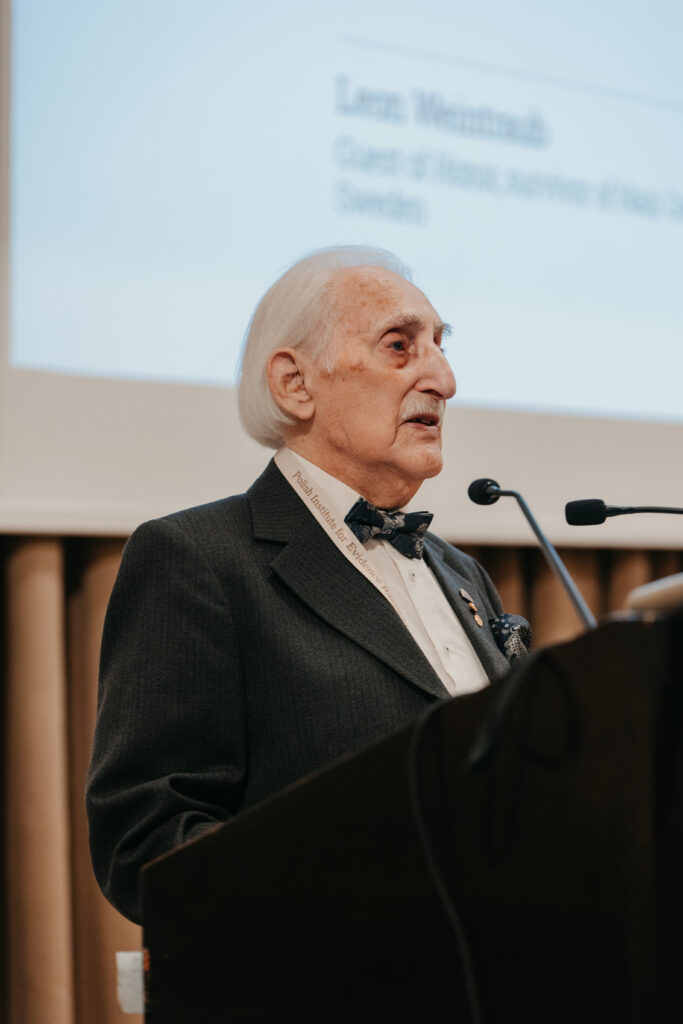

photo: Magda Rymarz
In their lectures and discussions, leading experts on medicine during World War II addressed the multiple aspects of violations of medical ethics by physicians and other health personnel serving Nazi Germany. Participants heard from physicians, historians, and legal scholars such as Prof Mildred Solomon (USA), Thorsten Wagner (USA), Prof Volker Roelcke (Germany), Karla Childers (USA), Prof Herwig Czech (Austria), Assoc Prof Kamila Uzarczyk (Poland), Dr Teresa Wontor-Cichy (Poland), Dr Filip Gańczak (Poland), Prof Michael von Cranach (Germany), Prof Marius Turda (United Kingdom), Prof Jay R. Malone (USA), Dr Katarzyna du Vall (Poland), Prof Hans-Joachim Lang (Germany), Dr Tessa Chelouche (Israel), Prof Rebecca Brendel (USA), and Prof Matthew Wynia (USA).
Presentations and panel discussions related these crimes of the past to present-day challenges, highlighting lessons for contemporary medicine and bioethics.
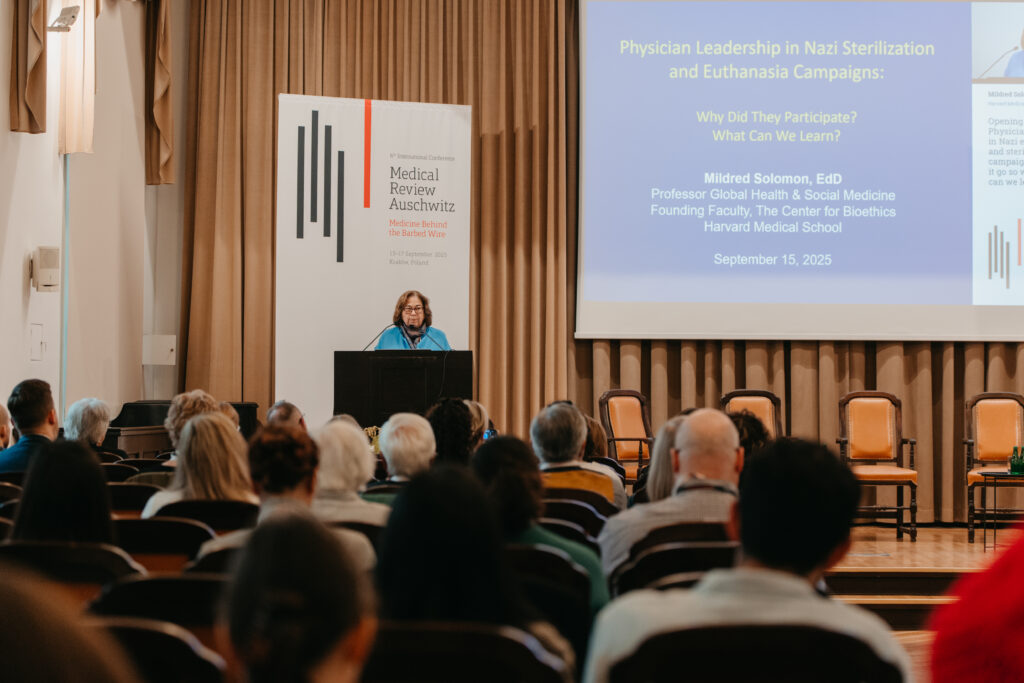

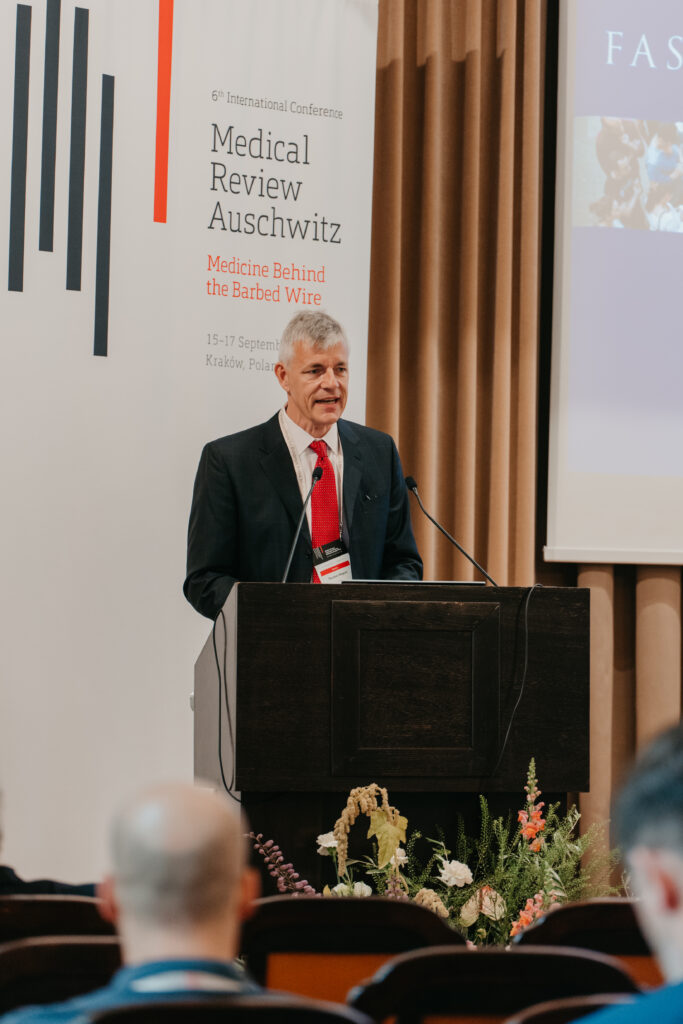

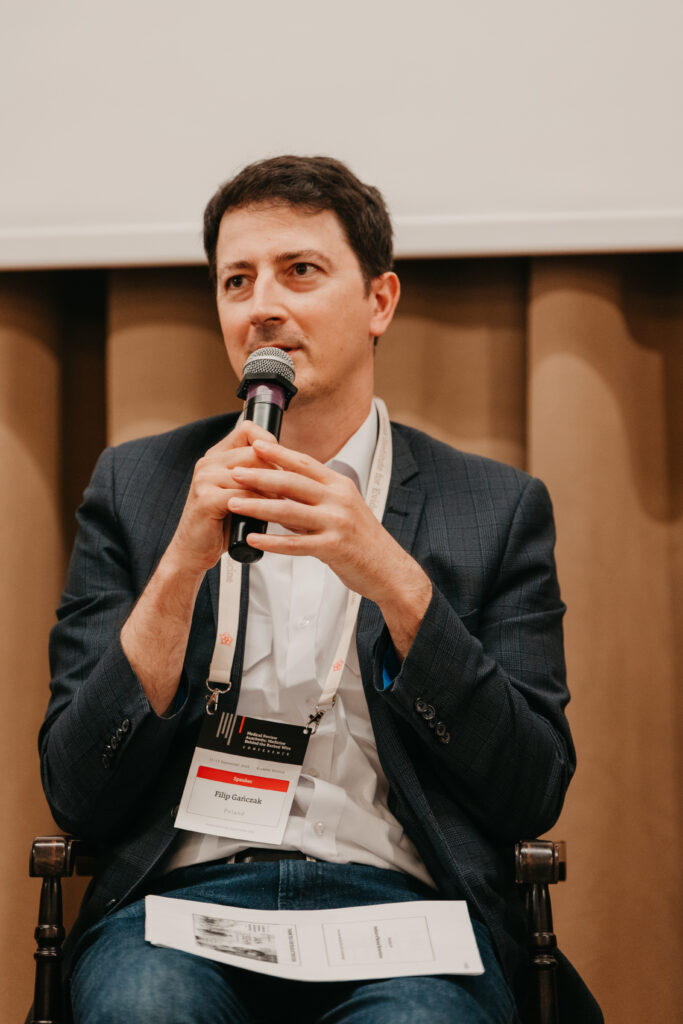

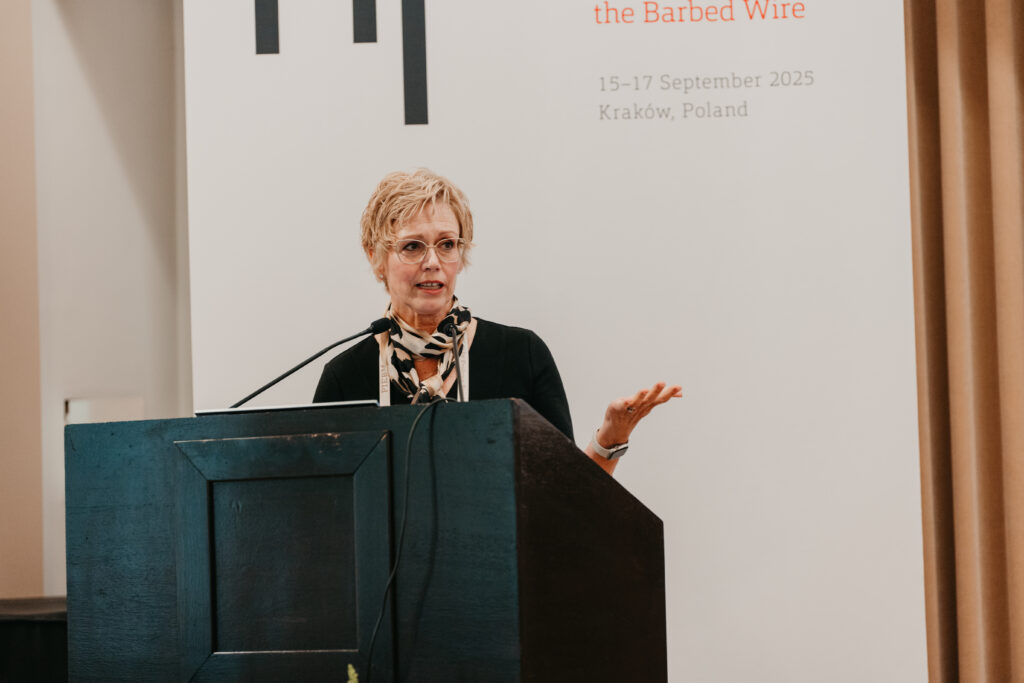

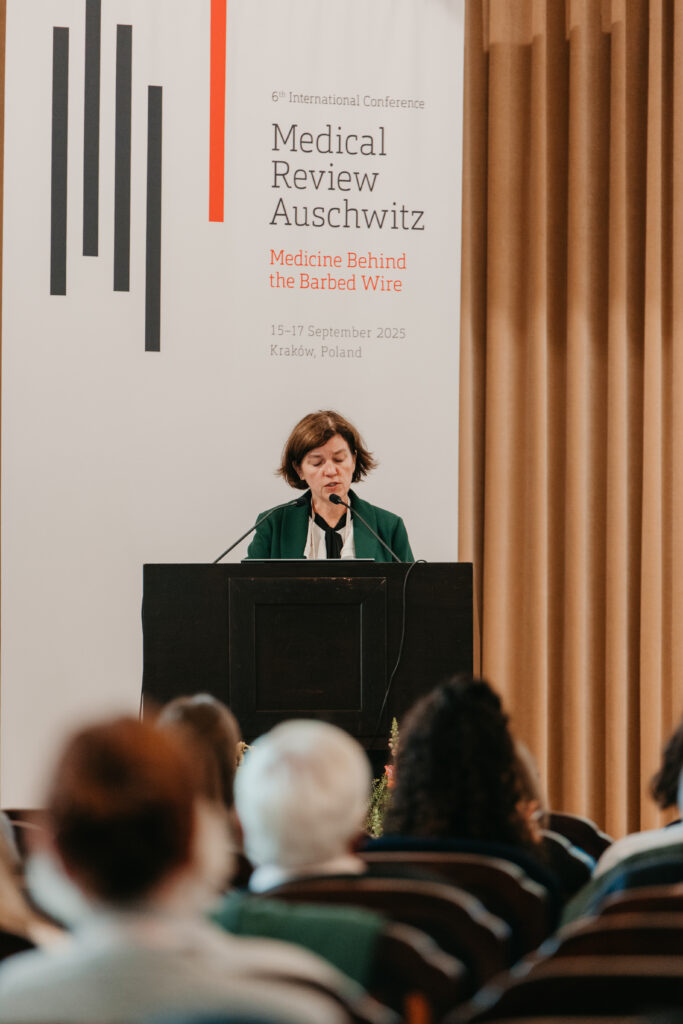

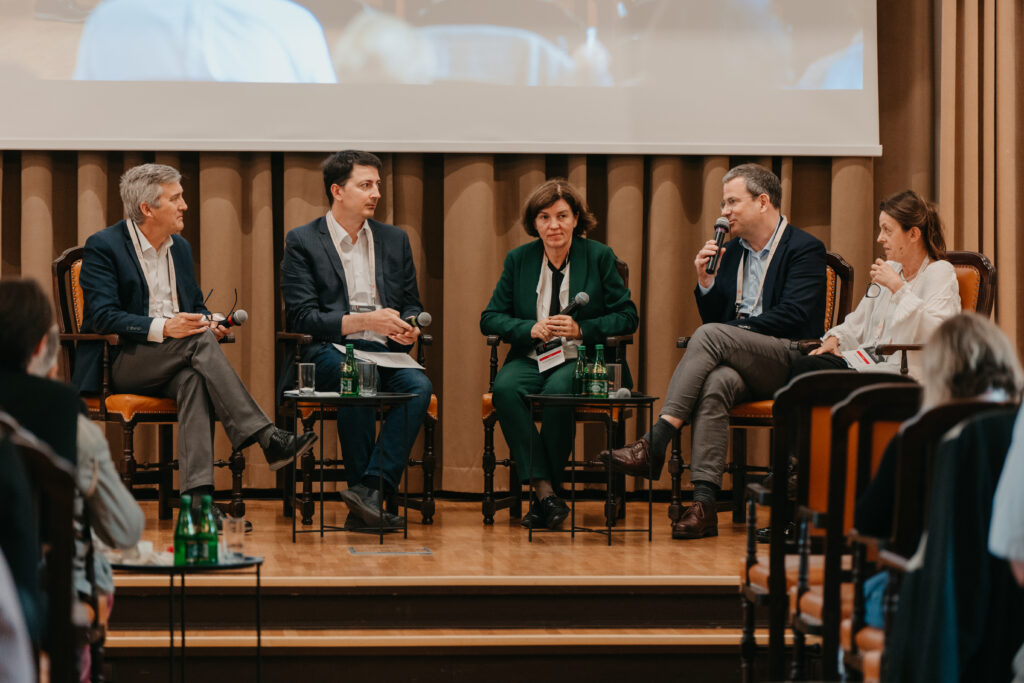

photos: Magda Rymarz
As in previous years, the Zdzisław Jan Ryn Award was presented in recognition for the best lecture, as determined by participant voting. The prize—a statuette by sculptor Karol Gąsienica Szostak—was awarded to Prof Jay R. Malone of Washington University School of Medicine in St Louis (USA) for his lecture “Suffering and the Moral Orientation of Presence.” Prof Mildred Solomon was also presented with the best lecture award from last year’s conference, in which she participated remotely.
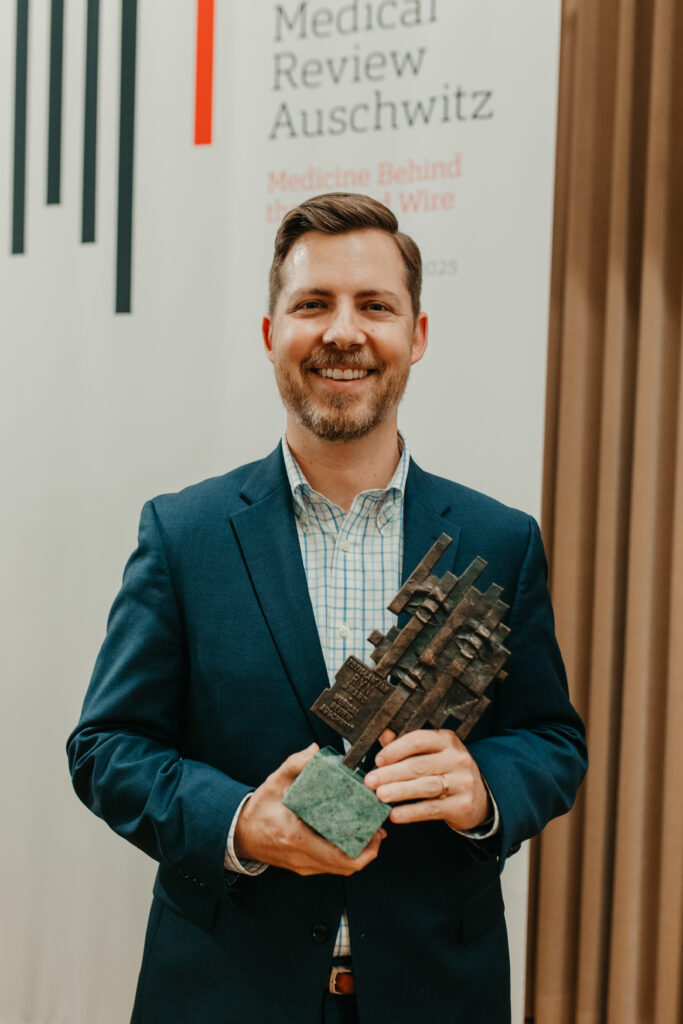

photo: Magda Rymarz
The conference concluded with a series of workshops on day 3. This offered an opportunity for the participants to exchange reflections following their visit to the Auschwitz-Birkenau Museum and the lectures.
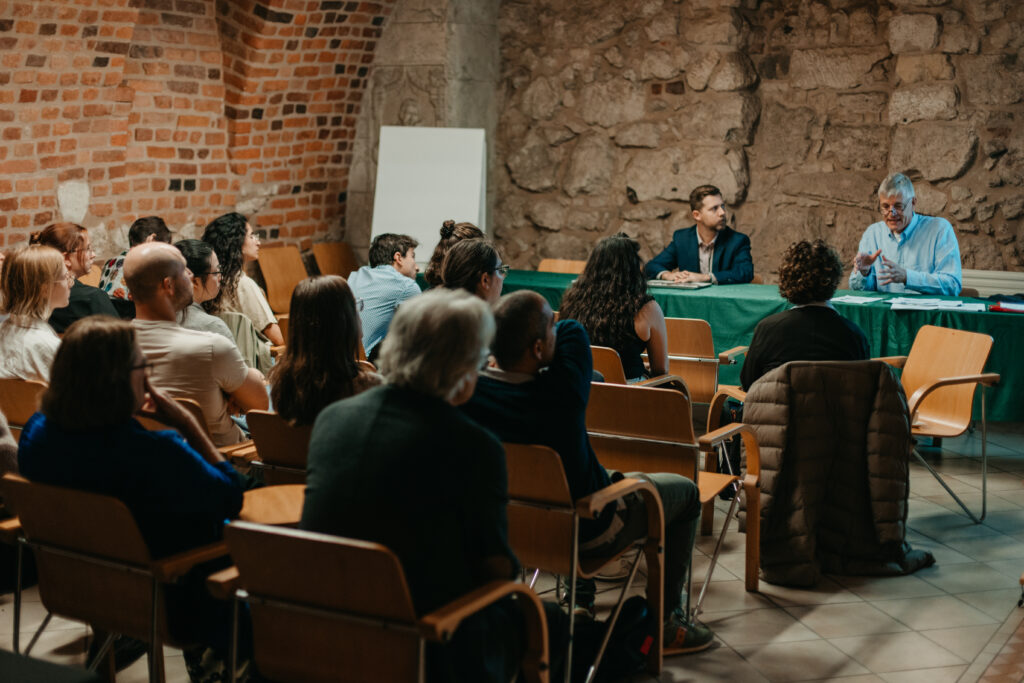

photo: Magda Rymarz
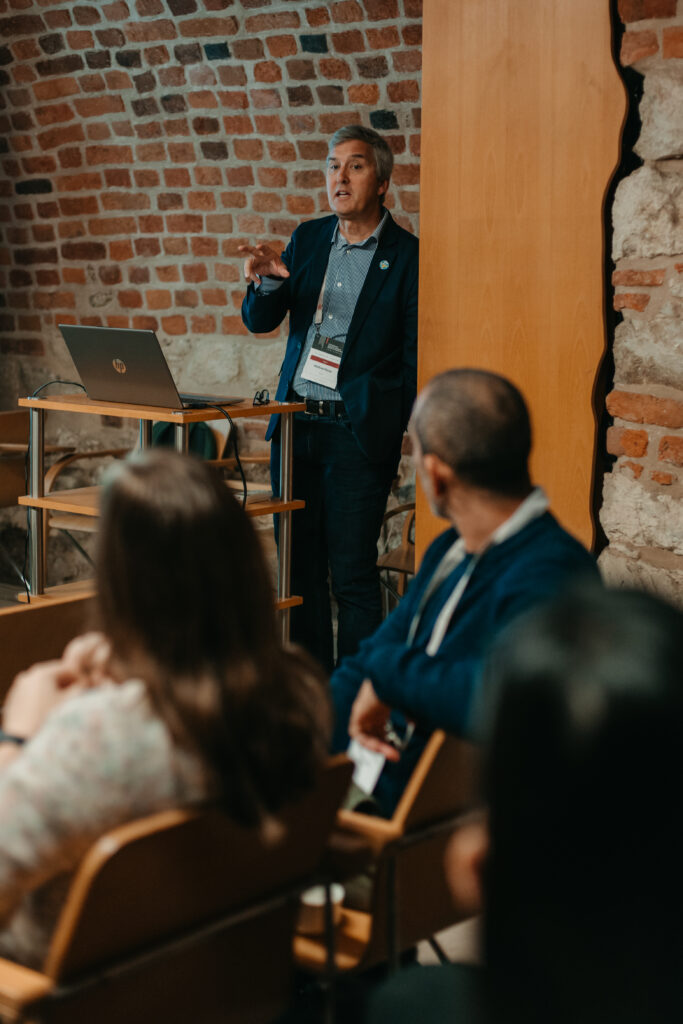

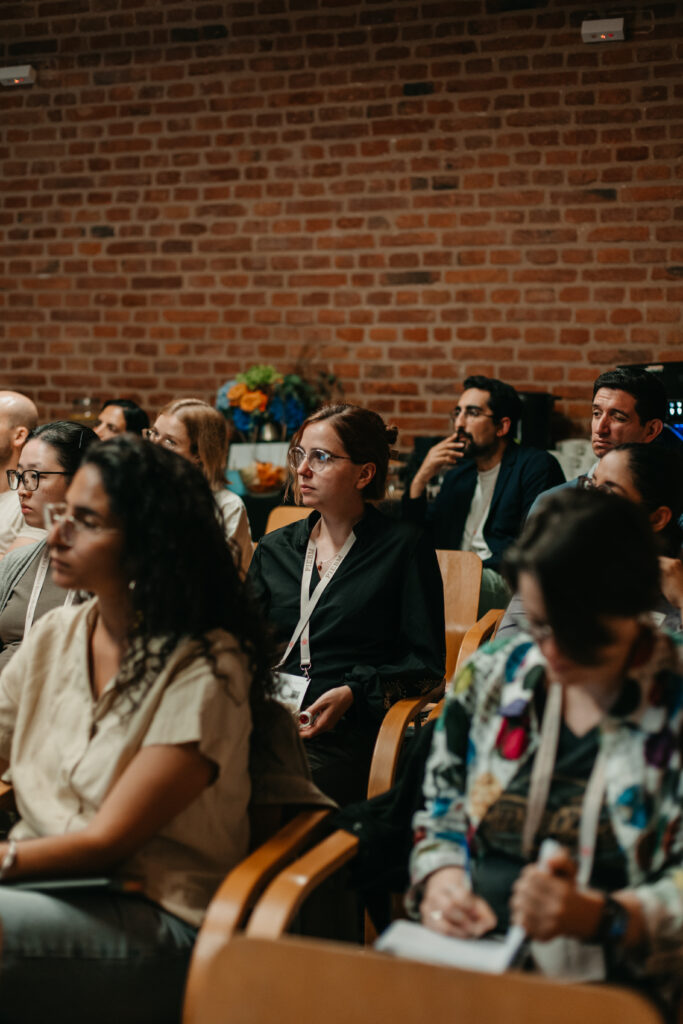

The conference Medical Review Auschwitz: Medicine Behind the Barbed Wire is organized annually by the Polish Institute for Evidence Based Medicine in cooperation with the Kraków Medical Society, the Institute of National Remembrance, the Jagiellonian University Medical College, and the Kraków Chamber of Physicians. The event partners include the Auschwitz-Birkenau State Museum, the Center for Bioethics at Harvard Medical School (USA), the University of Colorado Center for Bioethics and Humanities (USA), the International Chair in Bioethics – World Medical Association Cooperation Center (Israel), Fellowships at Auschwitz for the Study of Professional Ethics (FASPE), and the Museum of Kraków.
The 2025 edition was made possible through the financial support of the Finkelstein Foundation, the Institute of National Remembrance (funding for the fellowship program), and the Kraków Chamber of Physicians. The honorary patrons of the conference were Łukasz Smółka, Marshal of the Małopolska Region, and Aleksander Miszalski, Mayor of Kraków.
All lectures from the conference will be available free of charge at www.medical-auschwitz.one.
The 7th edition of Medical Review Auschwitz: Medicine Behind the Barbed Wire will take place in Kraków on October 6-8, 2026.
Main objectives of the Medical Review Auschwitz conference:
- To present to the international community—on the basis of reliable historical sources—truth about crimes committed by physicians and other health personnel in German Nazi concentration camps and other sites of extermination; the heroic medical assistance provided by fellow prisoners and other individuals; and the health consequences of camp imprisonment for survivors and their descendants.
- To promote scholarly exploration of Nazi medicine and medical ethics during World War II and to formulate messages relevant to contemporary medicine and bioethics.
